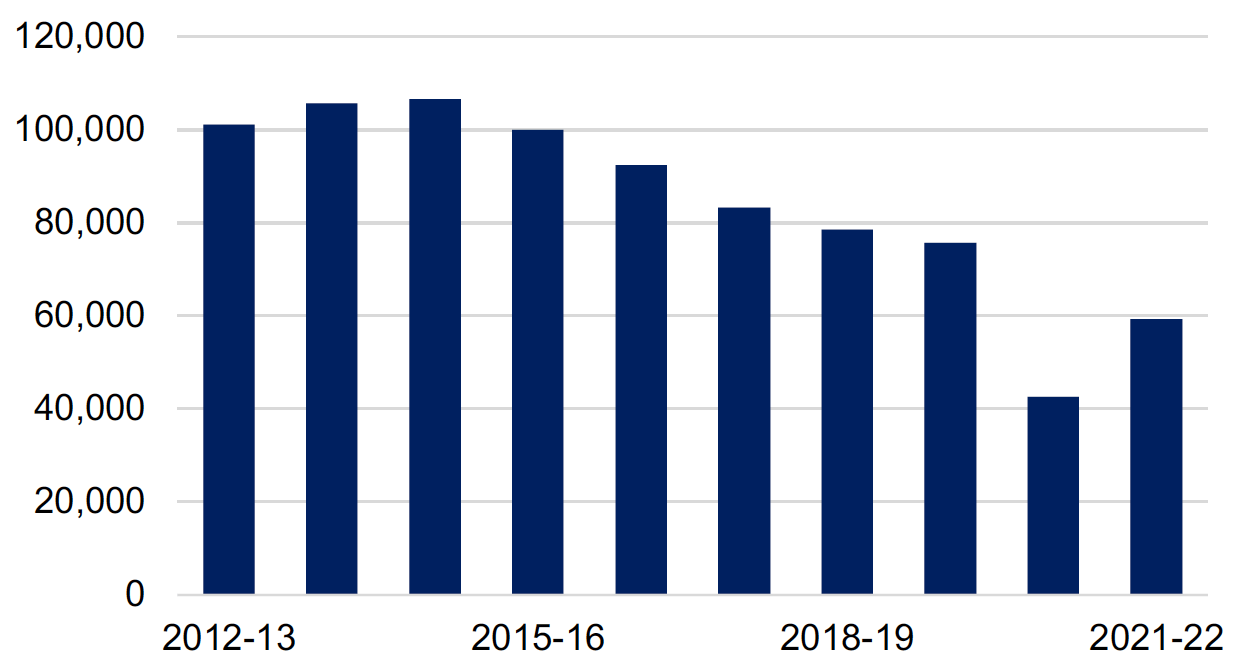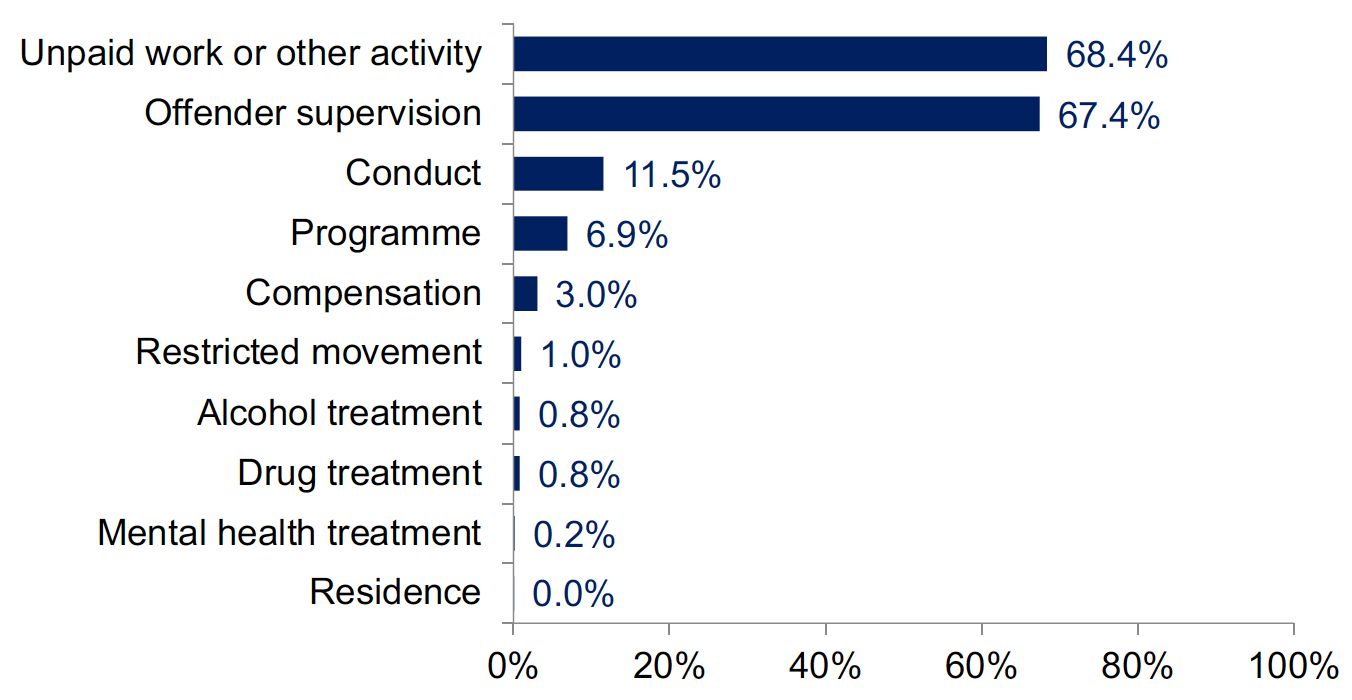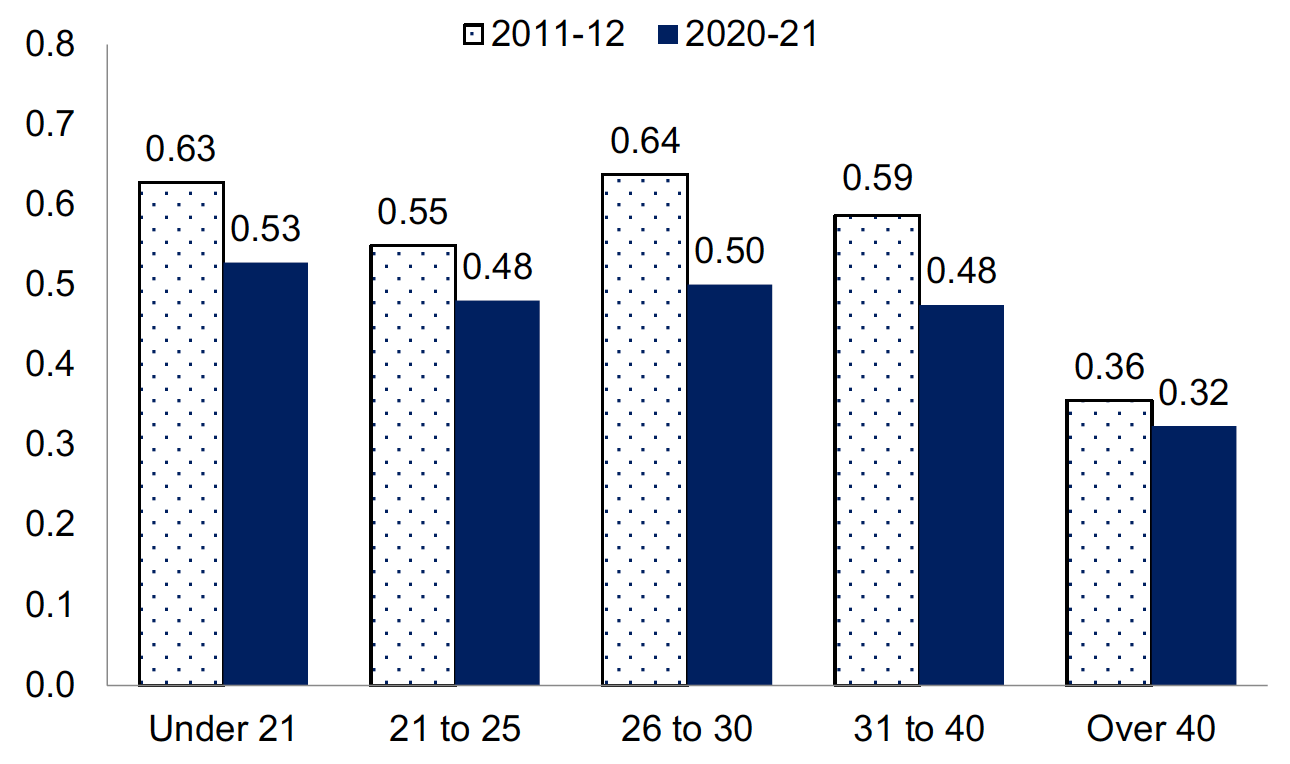Safer Communities and Justice Statistics Monthly Data Report: December 2024 edition
This report contains summary statistics covering a number of important justice and safer communities areas. It is published with up to date statistics every month.
Summary statistics on criminal and civil proceedings
COVID-19 continued to impact prosecutions and convictions in 2021-22. The number of people convicted in Scottish courts rose by 39% from 2020-21 to 59,295 but remain below a typical pre-pandemic year.

Note: Data from 2020-21 and 2021-22 are affected by the Covid pandemic and should not be considered indicative of long term trends.
Rise in convictions across all groups between 2020-21 and 2021-22. Convictions for sexual crimes rose by 52% and are the only group to exceed their pre-pandemic (2019-20) level. Road traffic offences rose the most proportionally (up 76%) and crimes of dishonesty the least (up 7%). Convictions for crimes under the Domestic Abuse (Scotland) Act increased by 81%, from 381 convictions in 2020-21 to 689 convictions in 2021-22.
Rise in numbers of community sentences issued and new high in proportion of sentences in 2021-22. The number of community sentences in court rose by 45% between 2020-21 and 2021-22, from 9,783 to 14,160, in line with the overall rise in convictions. The proportion of all convictions resulting in a community sentence rose to 24%, the highest in the past decade.
Average custodial sentence exceeds one year. For those who are convicted in court and sentenced to custody, the average sentence in 2021-22 was over twelve months (376 days) in length. This was 14% longer than in 2020-21, and 32% longer than the average of 284 days in 2012-13. The proportion of people receiving a sentence of less than one year fell by two percentage points to 73% in 2021-22, the lowest proportion of the last decade.
Community payback orders slightly more likely to have unpaid work than supervision. There were 14,700 community payback orders imposed in 2022-23. This was 20% higher than in 2021-22 but still 13% lower than in 2019-20. For the first time since 2019-20, more orders were issued with unpaid work or other activity requirements (68%) than offender supervision requirements (67%).This reflected decreased Covid-19 restrictions during 2022-23, meaning it was less difficult for unpaid work to be carried out.

Reconviction rates are still yet to return to pre-pandemic levels, but have increased from the 2019-20 cohort. The overall reconviction rate increased by 2.6 percentage points over the last year from 24.3% in 2019-20 to 26.9% in 2020-21. Data for 2020-21 was still affected by COVID-19, but the follow up period, up to March 2022 depending on when an offender entered the cohort, saw less COVID restrictions than the previous year.
The average number of reconvictions per offender has decreased over time. The average number of reconvictions per offender was 20% lower in 2020-21 compared to 2011-12. The fall in the longer term was driven by younger age groups, with average reconvictions decreasing by 16% for under 21s, 13% for 21-25 year olds, 22% for 26-30 year olds, and 19% for 31-40 year olds. In contrast, average reconvictions returned to levels similar to a decade ago for those over 40.

Number of children referred to SCRA on offence grounds rose by six per cent in the last year. Statistics published by the Scottish Children's Reporter Administration (SCRA) show that, in 2023-24, 2,733 children were referred to the reporter on offence grounds. This constitutes a rise of 6% from 2022-23 and is similar to the level of 2,761 in 2015-16.
The most recent ten years show a general downward trend in initiated civil law cases, latest figures show gradual recovery from the pandemic. There were 60,943 civil law cases initiated across the Court of Session and sheriff courts in 2022-23 (excluding summary applications). This represents an increase of 13% from 2021-22.
Most case types increased between 2021-22 and 2022-23, except family which fell by 7%. The highest increases were seen in evictions (up 128%) and damages (up 28%). The increase in evictions follows a large Covid-related fall in 2020-21 to a record low. The increase in eviction initiations in 2022-23 is moving towards the levels observed pre-pandemic but is still 63% lower than in 2019-20. Damages too are still substantially lower than pre-pandemic levels (56% down on 2019-20). Personal injury (up 12%) and repossession (up 14%) recorded the lowest increases between 2021-22 and 2022-23.
Contact
Email: justice_analysts@gov.scot
There is a problem
Thanks for your feedback